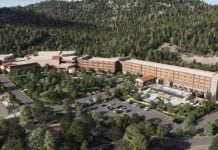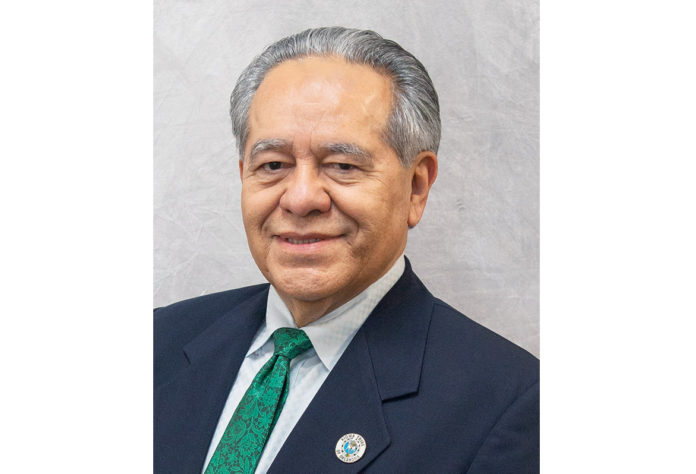Lawrence SpottedBird, Chairman
Kiowa Tribe
Kiowa Casino Red River – Devol, OK; Kiowa Casino Carnegie – Carnegie, OK; Kiowa Casino Hobart – Hobart, OK (coming fall 2024)
kiowacasino.com / kiowatribe.org
BENEFITS OF GAMING: The Kiowa Tribe has a history of poor management that didn’t develop any new revenue-generating enterprises other than our casinos. We currently have two casinos with a third currently under construction. Therefore, gaming is our only source of discretionary funding for which we can support our tribal operations.
If not for the American Rescue Plan Act funding that was allocated to us and all tribes, we would be very limited on the services we can provide to our tribal citizens in need.
Going back to the early 1980s when we tribes in Oklahoma first developed high stakes bingo operations, we learned quickly that generating our own revenues through profits from enterprises empowered our tribe to address our priorities as we determine. With the enactment of the National Indian Gaming Act in 1988, we were then able to explore Las Vegas-style gaming with slots and table games beyond bingo.
It took the Kiowa Tribe a long time to get our first casino opened in 2007, but with that opening, it created a new era for us with more discretionary funding to support our tribal government operations. Now that we have two casinos with a third under construction, we look forward to funding our growth outlined in our new strategic plan. Key to this plan is to diversify our enterprise base and generate revenues through non-gaming businesses located in Southwest Oklahoma.
GOALS & INITIATIVES: The Kiowa Tribe currently has developed a three-part, 10-year strategic plan outlining tribal governance, economic development and workforce development entrepreneurship development. With respect to tribal governance, this includes seeking self-governance status and reorganizing our government structure to be consistent with our new tribal constitution that identifies an Executive Branch with four divisions; a legislative branch consisting of seven legislators; a Judicial Branch consisting of a Trial Court and a Supreme Court; and the Kiowa Indian Council – all voting age citizens of the Kiowa Tribe, 18 years or older.
In terms of economic development, that would encompass developing a federally chartered corporation – Kiowa, Inc. – to serve as the holding company to form all for-profit business enterprises in six business divisions owned by the Kiowa Tribe, including gaming and hospitality development.
Finally, regarding workforce development/entrepreneurship development, that would entail developing a tribal-owned non-profit community development corporation to support the creation of a one-stop services center – Kiowa Tribal Empowerment Center – that will empower our Kiowa tribal citizens to learn how to support themselves through career development or small business development, while removing barriers to success like alcohol and drug abuse, limited or no access to capital, and the lack of education, transportation and housing.
LEGISLATIVE: Currently, the State of Oklahoma has a very anti-tribal governor who is creating an adversarial climate in the state among the 38 federally recognized tribes here. There are also two Supreme Court decisions that create almost opposite decisions regarding tribal sovereignty. The 2020 McGirt ruling was consistent with 200 years of Supreme Court precedent recognizing the right of tribal nations to self-govern without being infringed upon by the states, whereas, the recent Castro-Huerta ruling recognized that state governments have the authority to prosecute certain cases on tribal lands. This indicates a gradual eroding of tribal sovereignty that gives the states more and more authority to negatively impact tribes and our ability to self-govern, especially in tribal unfriendly states like Oklahoma.













































